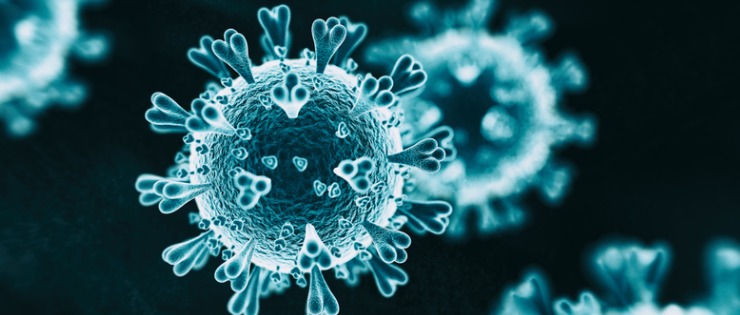
There’s no shortage of myths, lies and fake news surrounding COVID-19. Some believe the misinformation has circulated faster than the virus itself. Here we debunk the myths circulating and leave you with only the facts.
Myth #1 Only the Elderly and Those with Pre-existing Conditions Are Likely to Need Hospital Treatment
While seniors and people with underlying health conditions have a much greater chance of needing hospital treatment, The Centres for Disease Control and Prevention (CDC) report revealed 20% of hospitalised patients are between the ages of 20 and 44 years. Around 12% of intensive care patients are in this age bracket.
No one has immunity, and no one can know for sure what their outcome will be. No matter what your age or health condition, everyone should follow social distancing recommendations as they apply in your state to keep you and your community safe.
Myth #2 5G Mobile Networks is Spreading COVID-19
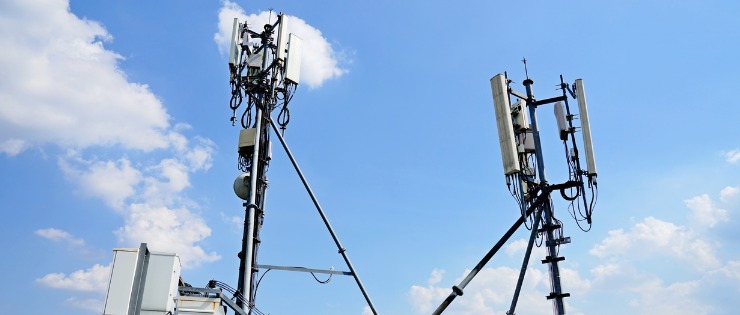
Viruses aren’t transmitted by radio waves or mobile networks. There's no scientific link between 5G and COVID-19. The virus has spread in countries that don’t have a 5G mobile network. Evidence shows that wireless telecommunications do not weaken your immune system and don’t place you at risk of contracting the virus.
Myth #3 Drinking Very Hot Water Can Kill the Virus
In the early stage of the coronavirus, social media was littered with advice on drinking hot water to kill off the virus. It advised people to sip hot water throughout the day so it washes the virus into the stomach where it can be expelled rather than allowing it to take up residence in the lungs. Gargling hot water was also said to keep the throat virus-free. However, there’s been no evidence that hot or boiling water can keep you safe from COVID-19 and drinking water that is too hot can cause serious burns.
Myth #4 The Virus Can’t Survive in Hot Climates
Some people believe the virus is less likely to spread when the weather is hot.
There’s no evidence that any climatic conditions including hot and humid weather can slow the virus’ rate of transmission. The virus proved that it can spread around the world in a wide range of temperatures.
Myth #5 The Virus is Killed off in Cold Weather
Despite the temperature outside, a healthy human body’s temperature stays around 36.5-37°C. In fact, winter is considered a dangerous time for the spread of viruses because people spend more time indoors, increasing the risk of transmission. Keep washing your hands and clean high touch points in your home often.
Myth #6 Some Foods like Pepper Provide Protection Against COVID-19
Adding pepper to food or eating any other food can’t protect you from contracting the coronavirus. However, a strong immune system may be beneficial in fighting the virus so enjoy a healthy diet, and get enough exercise and sleep.
Myth #7 Spraying Disinfectant on Your Skin or Ingesting It Can Protect You from COVID-19
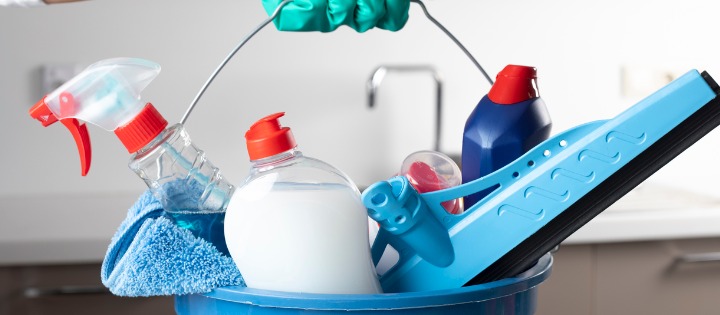
Bleach and disinfectant products can be poisonous if sprayed on the skin or ingested. These products should only be used to disinfect surfaces. Cleaning with bleach can kill SARS-CoV-2 (the Coronavirus that causes COVID-19), ingesting bleach can lead to serious health consequences and it can be fatal. Keep out of reach of children at all times.
Myth #8 You Can Use a Breathing Test to Check If You Have Coronavirus
There’s a myth that if you can hold your breath for 10 seconds or more without the need to cough or feeling discomfort then you’re coronavirus free. There is no breathing test you can do that tells if you’re infected, the only accurate test is a laboratory test.
Myth #9 Flies or Mosquitoes Can Spread Coronavirus
The WHO has found no evidence to support the myth that either house flies or mosquitos can spread the coronavirus from person to person. Your best defence is to wash your hands regularly and keep your distance from other people, especially anyone who’s coughing or sneezing.
Myth #10 Drinking Alcohol Can Keep You Virus Free
Consuming alcohol frequently or excessively does not provide any protection against COVID-19. In fact, studies have shown that excessive alcohol consumption weakens the immune system making you more susceptible to pneumonia and increases your risk of other health problems.
Myth #11 Once You Recover from COVID-19, There Are No Long-term Health Problems
The virus is only months old so no one knows what the future health of victims will be. We know from other illnesses that people who develop acute respiratory distress syndrome (ARDS) have greater long term health problems and intensive care treatment increases the risk of mental health problems. Doctors around the world will monitor the health of recovered COVID-19 victims, but it’s too early to say if some victims will experience reduced function or damage to organs.
Myth #12 A Vaccine Will Definitely Be Ready in 12-18 Months
Millions of people worldwide have had their lives saved by vaccines for several deadly diseases. The medical world has made impressive developments in vaccines and have eradicated some deadly health conditions such as smallpox and measles in some countries. As devastating as these conditions are, neither of them are coronaviruses.
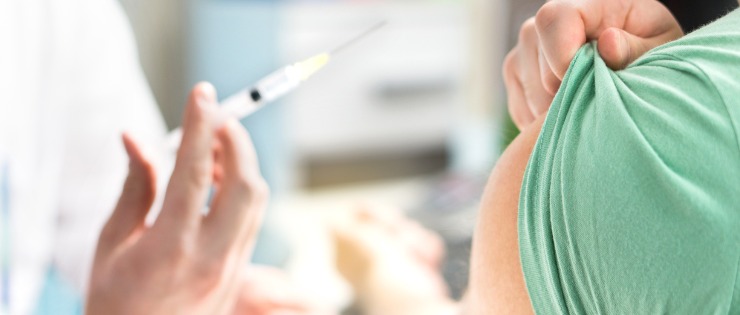
Coronaviruses are difficult to develop a vaccine for. The two most recent coronaviruses we’ve seen, SARS and MERS, stopped spreading before they could find a vaccine. COVID-19 has impacted far more countries, caused more deaths and economic consequences, so more scientists are working fast to find a vaccine.
Myth #13 Hydroxychloroquine Can Be Used to Treat Patients Who Are Suffering Serious Complications from COVID-19
US President Donald Trump touted the effectiveness of the drug hydroxychloroquine early in the pandemic and bought millions of doses. Australian politician Clive Palmer did the same. However, a study that researched the effectiveness of the drug stopped early because the high quantity of the drug needed to treat patients was causing heart problems. Research is being conducted on many drugs around the world to find one that’s safe and effective but the WHO advises there are no drugs licensed to treat COVID-19.
Myth #14 Having Parcels Being Delivered to Your Home Is Risky
Because of poor survivability of COVID-19 on some surfaces, there’s likely very low risk of spread from products or packaging that have been shipped over a period of days or weeks.
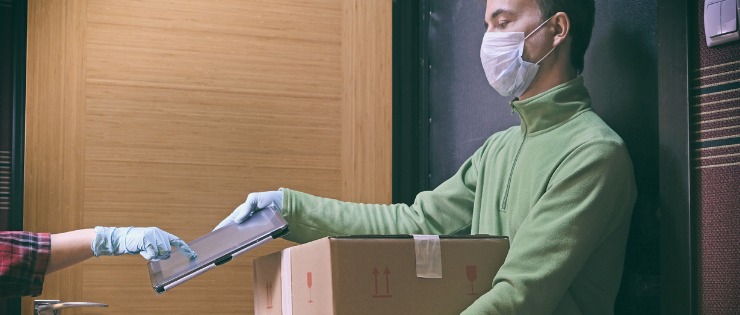
While the virus cannot survive on paper or cardboard for long, it’s still a good idea to keep up good hand hygiene practices and wash your hands with soap and water or hand sanitiser after opening a package.
Myth #15 Food Can Be Contaminated with the Virus and Infect Others
There’s no evidence that food can transmit the virus. However, no one who is suffering flu-like symptoms or infected with COVID-19 should prepare food for another person.
Myth #16 Hand Dryers Can Kill the Virus on Your Hands
The heat of the air dryer won’t kill coronavirus, but using soap and water to wash your hands for 20 seconds can, as will an alcohol-based hand sanitiser. You can still dry off your hands after washing them, just don’t use an air dryer alone.
Myth #17 Ultra Violet (UV) Lamps Can Disinfect the Skin
UV lamps shouldn’t be used to disinfect any part of the body as the radiation can cause skin irritation and eye damage. UV lamps and too much exposure to the sun can cause chronic health effects. Practise good personal hygiene by using soap and water, or an alcohol based hand sanitiser to disinfect your hands.
Myth #18 Faeces Can Cause COVID-19 Transmission
There was an overseas news report early in the pandemic that faulty plumbing in a high rise apartment was responsible for transmitting the virus to occupants on the floors below. The WHO has reviewed available evidence and concluded that COVID-19 can only be spread by infected respiratory droplets and contaminated surfaces.
Myth #19 Wearing a Face Mask Will Protect You from Being Infected by Coronavirus
Some countries require their citizens to wear a face covering when they are in public. Most of the western countries that have introduced the strict requirement are experiencing widespread community transmission.
The Australian government has repeatedly advised it’s not recommended for healthy people and those not caring for a person with confirmed or probable COVID-19 infection to wear a face mask. However, anyone with cold or flu-like symptoms who need to leave their house to seek medical attention should wear a mask so they don’t potentially infect others.
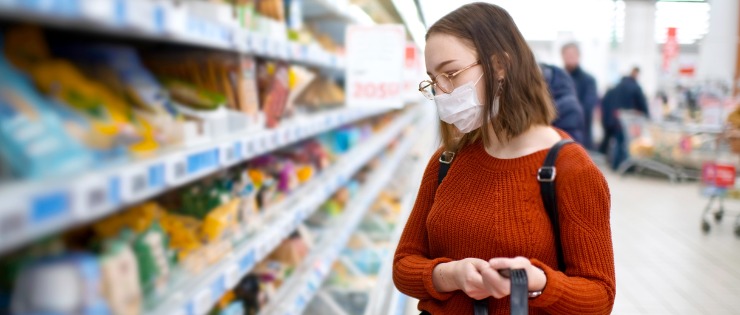
Myth #20 The Virus Tally are the Only Victims
Unfortunately, it’s not just those infected with the coronavirus who are victims. Many Australians will suffer ongoing mental health problems because of the social, health and economic impact of the virus.
Job loss alone can increase suicide rates. The Brain and Mind Centre modelling suggests COVID-19 could cause up to 750 extra suicides a year in Australia, if the unemployment rate was around 11 per cent.
The Australian government allocated funding to provide more mental health support so organisations like Lifeline and Beyond Blue could help the increased number of people accessing the services.
Accurate Information on COVID-19
Never has it been more important to gain accurate information. Don’t rely on anything you read on social media as being correct. Always check the information with a reputable website such as: